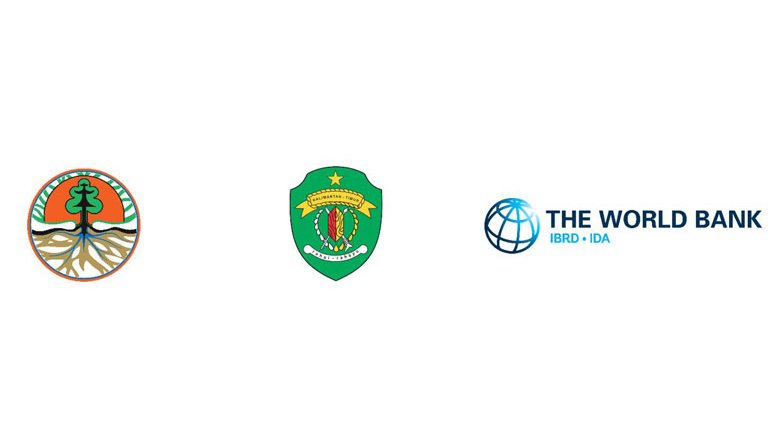Jakarta, November 8, 2022 — Indonesia received an advance payment of US$20.9 million (IDR320 billion) under the Emissions Reduction Payment Agreement between the Government of Indonesia and the World Bank’s Forest Carbon Partnership Facility (FCPF) for reducing emissions from deforestation and forest degradation (REDD+) in East Kalimantan province. Under the Agreement, Indonesia would receive up to US$110 million (IDR1.6 trillion) for verified emissions from reducing deforestation and forest degradation.
Indonesia has become the first country in the East Asia Pacific region to receive payments through the World Bank’s FCPF, which represents 13.5 percent of the value of the emissions reduction reported in the Government of Indonesia’s Monitoring Report for the 2019-2020 crediting period. The full payment will be released once the independent third-party verification of the reported emissions reductions, which is currently ongoing, is complete.
The advance payment will facilitate the start of the East Kalimantan program’s Benefit Sharing Plan, which was developed by the Government of Indonesia and issued in October 2021. The Benefit Sharing Plan document was developed through a consultative, transparent, and participatory process to ensure that all relevant stakeholders of the program are able to access the benefits from the emissions reduction payments. The document outlines the agreed arrangements for how ERPA payments will be shared with beneficiaries, from national government, local government, to local communities.
“This program is an opportunity for government, civil society, businesses and communities to take action collectively to protect Indonesia’s forests, and is a recognition of Indonesia’s success in reducing deforestation,” said Siti Nurbaya Bakar, Indonesia’s Minister of Environment and Forestry. “This is only the beginning. Our efforts in managing forests sustainably will continue to meet our emissions reduction target under the Paris Agreement, help address the impacts of climate change, and set Indonesia on a path of green development.”
“A number of policy changes have facilitated emissions reductions in the forestry sector, including improvements in governance and monitoring, restoration of critical ecosystems such as peatlands and mangroves, permanent ban on conversion of peatland and primary forest, programs to improve land tenure clarification, and promotion of rural livelihoods through the government’s social forestry programs and partnerships around conservation areas,” continued Minister Bakar.
“In East Kalimantan, our people are at the heart of sustainable land and forest management,” says Dr. Ir. Isran Noor, M.Si., East Kalimantan Governor. “We will work to ensure that everyone benefits, particularly local communities including indigenous people from the long-term outcomes of this program and payments – improved livelihoods, healthier forests and communities that are more resilient to the impacts of climate change. We also expect this program to attract other sources of financing, as we are committed to reducing emissions from deforestation and forest degradation in the long-term.”
“This program will help build confidence in the international and national systems of performance-based payments – a critical tool to incentivize climate change mitigation,” says Satu Kahkonen, World Bank Country Director for Indonesia and Timor-Leste. “We applaud Indonesia’s sustained reductions in deforestation rates over the past five years, and we hope to continue supporting the transition towards a green economy.”
About Indonesia’s Emissions Reduction Payment Agreement (ERPA)
The ERPA is a legally binding contract to provide payments for environmental services, in other words, compensation for Indonesia's efforts to preserve tropical forests and in so doing reduce the emission of greenhouse gases into the atmosphere. The payments are designed to help Indonesia and its stakeholders achieve long-term sustainability in financing forest conservation. They are intended to help reduce climate change impacts from forest loss and degradation by making forests more valuable standing than cut down, by offering countries results-based incentives for reducing emissions in their forestry and broader land-use sectors.
About the Forest Carbon Partnership Facility (FCPF)
The World Bank’s Forest Carbon Partnership Facility (FCPF) is a global partnership of governments, businesses, civil society, and Indigenous Peoples' organizations focused on reducing emissions from deforestation and forest degradation, forest carbon stock conservation, the sustainable management of forests, and the enhancement of forest carbon stocks in developing countries, activities commonly referred to as REDD+. Launched in 2008, the FCPF has worked with 47 developing countries across Africa, Asia, and Latin America and the Caribbean, along with 17 donors that have made contributions and commitments totaling US$1.3 billion.

